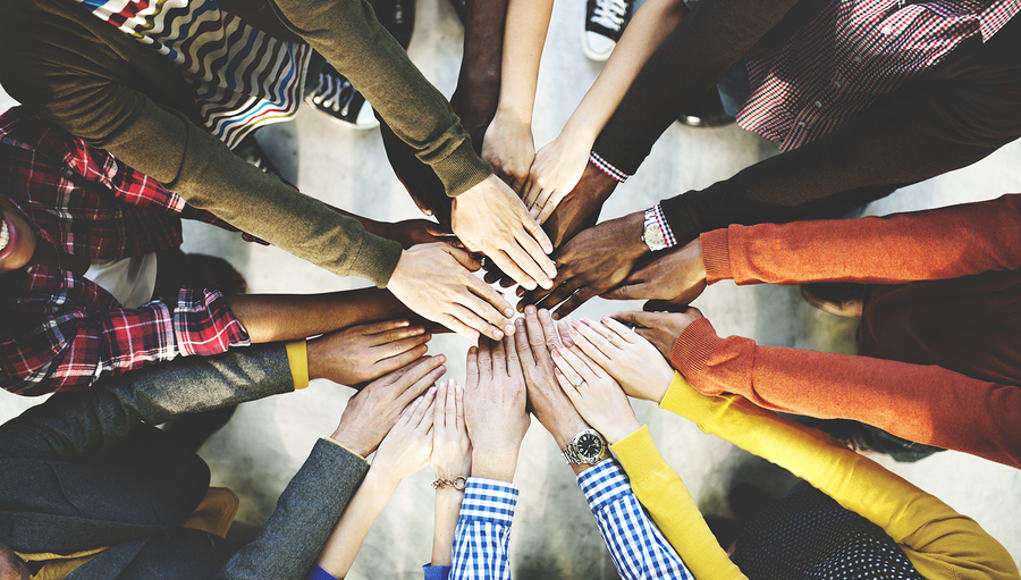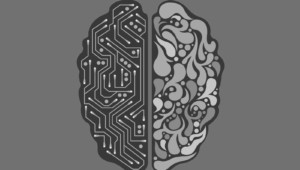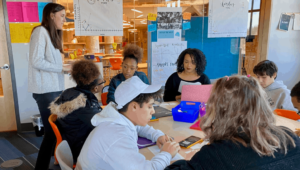Sharing: The New Superpower

By Tom Vander Ark and Justin Aglio
Share everything. That was Robert Fulghum’s first lesson in Kindergarten. It turns out that learning to share will be even more important than Fulghum thought. How we share will shape the next 50 years of human existence.
Production has been the focus of modern economies. We’ve reached the point where we’re good enough at production to feed, clothe, transport, and connect everyone on the planet–we just haven’t figure out how to share the bounty of our production–and how to do it sustainably.
And now, just in the last two years, the game has changed, the pace has quickened. It is expanding opportunity and inequity–and that gap makes learning to share more important than ever.
AI: The New Race for Tech Supremacy
The rise of artificial intelligence (AI) and the automation economy means that machines will augment and eventually replace many forms of human production. As the returns on labor shift to returns on capital, income will increasingly flow to those that develop, own and finance the robots. Growing income inequality is inevitable. (If you think people were ticked in 2016, just wait.)
As we’ve seen with the last three industrial revolutions (steam, electricity, and information), these inequalities have macro and micro effects. The countries with stable governance and open markets that invest in infrastructure and education win big–South Korea is the often cited example of having vaulted from poverty to the lead pack in a generation.
AI is the new economic arms race. Academic and venture capital leadership have given the U.S. a big head start over the rest of the world. But it may be a short head start. Alphabet chairman Eric Schmidt believes the U.S. is not keeping up with China as they invest in education and development efforts in a focused and coordinated way. If China does catch the U.S. in AI supremacy in the next decade, the two superpowers will leave most of the rest of the world behind.
“The people who are inventing these AI algorithms, building AI companies, they will become the haves,” said Chinese AI expert Kai-Fu Lee. “The people whose jobs are replaced will be the have-nots. And the gap between them, whether it’s in wealth or power, will be dramatic, and will be perhaps the largest that mankind has ever experienced.”
The good news is that machine intelligence will produce extraordinary wealth. It will make energy and transportation cheap. It will help cure many common diseases and extend life. It will remove drudgery from our lives. What’s not clear is how these extraordinary benefits will be shared–between or within countries.
The Sharing Economy
In the last 10 years, we’ve seen the rise of the sharing economy, what the World Economic Forum calls the sharing of underutilized assets, monetized or not, in ways that improve efficiency, sustainability and community.
Airbnb shared extra space; ride sharing apps like Uber improved car utilization; task services leverage a few unproductive hours. In this sharing economy, a consumer may act as both providers or obtainers of resources.
Blockchain will decrease the influence of middlemen in several sectors including banking and lending, travel experiences, artistic rights, and educational credentialing.
The platform businesses that drive this new sharing economy make markets more efficient and extend employment opportunities but pose a new data security threat (i.e, a little too much sharing) and are likely to exacerbate wealth aggregation (return on algorithms beats return on labor).
The increasing concentration of income and wealth will make the civics of sharing–how communities and countries decide to share the wealth–the new determining factor for the quality of life for the next generation.
The Civics of Sharing
As we march up the curve of exponential change and as man-made systems collide with natural systems in ways we didn’t foresee, we’re all in for more change. Most regions will face waves of unemployment, stress on social services, demand for retraining, questions about autonomous transportation, and requests for better access to health benefits.
How communities decide to share will influence health and opportunity for the next 50 years. These decisions will be influenced by cultural and political traditions. Compared to Scandinavia, Europe, and Asia where there is a stronger impulse towards collectivism, the U.S. is particularly unprepared for conversations about sharing.
Expanding on the conclusions from our Ask About AI report, there are at least eight ways in which we can begin to shift our focus from production to sharing–to building an opportunity platform that gives everyone a shot at participating in the future.
-
- It’s time to talk. Every community should be discussing the enormous potential benefits and emerging challenges associated with AI, and more broadly the future of work (#FutureofWork). By discussing what’s happening, people begin to better anticipate exponential change. Local conversations should focus on near-term threats to employment and unique assets that can be leveraged to support new businesses.
- Businesses should adopt a broader scorecard. “To prosper over time, every company must not only deliver financial performance but also show how it makes a positive contribution to society,” said BlackRock CEO Larry Fink in a letter to CEOs. “Companies must benefit all of their stakeholders, including shareholders, employees, customers, and the communities in which they operate.” What makes Fink’s advocate for total impact remarkable is that with more than $6 trillion in assets under management, BlackRock is the largest investment management firm. Marjorie Kelly, author of Owning Our Future, makes the case that as long as businesses are set up to focus exclusively on maximizing financial income for the few, our economy will be locked into endless growth and widening inequality. She points to new forms of ownership, which she calls generative, aimed at creating the conditions for life for many generations to come.
- Citizens should mobilize. Cause networks like Indivisible support local issue-oriented campaigns. Launched just a year ago, there are over 6,000 Indivisible groups around the country. Agile networked community groups will be key to regions becoming more responsive and adaptive and better able to address the waves of challenging issues headed their way.
- It’s time to build a stronger social safety net. While reported unemployment is low right now, most communities will face increasing dislocation and transition. Vulnerable populations will be at risk more frequently, putting new demands on social services including transitional housing, job training, and mental-health supports. Each community will build solutions that share support services in unique ways.
- It’s time to update graduate profiles. Civic and education leaders should be hosting community conversations about what’s happening to the employment landscape and how to prepare. America Succeeds, Battelle for Kids, Knowledge Works, and P21 are all supporting local conversations with great resources that stress the importance of learning to collaborate.
- It’s time to help youth find their unique contribution. Perhaps most importantly, education should be about helping every young person discover and develop their superpowers, identifying causes they care about and spotting places where they can make a contribution. If we take citizenship preparation seriously, we should be encouraging young people to engage with the world’s most important issues by helping them frame community projects around these goals.
- It’s time to connect communities to smart resources. Google and Microsoft have set a good example with TensorFlow and Azure Machine Learning, but both of these tools take a good deal of judgment and technical expertise to use. In order to give every high-school and college student exposure to open AI tools and their use, we could really use some advice on using open-source tools. AI4ALL, a new Oakland nonprofit, is connecting leading universities with urban youth to empower contribution and inspire career aspirations.
- It’s time to build smart cities. Every region needs to develop learning ecosystems that help people skill up fast around distinctive capabilities. As we noted in Smart Cities That Work for Everyone, learning ecosystems include innovation leadership, public and private partnerships, aligned investment, talent pipelines and multiple affordable-learning entry points that recognize prior knowledge and certify new skills.
Tulsa is a great example of a city that, despite low funding for K-12 education, has developed a collective approach to a great early start, key academic milestones, and high school graduation.
“We perhaps exist to create. We perhaps exist to love,” concluded Kai-Fu Lee. “And if we want to create, let’s create new types of jobs that people can be employed in. Let’s create new ways in which countries can work together. If we think we exist to love, let’s first think how we can love the people who will be disadvantaged.”
The leaders and teachers that promote sharing attitudes and skills, tools and agreements will invent our shared future. Let’s teach kids to share. Let’s give youth opportunities to experience success making community contributions. Let’s create communities that support families. Let’s learn to share.
For more see:
- Ask About AI: The Future of Work and Learning
- On Beautiful Shared Places
- 30 Great Resources for Sharing, Showing & Tracking
- Capitalism That Works For Everyone | Getting Smart
This post was originally published on Forbes.
Stay in-the-know with all things EdTech and innovations in learning by signing up to receive our weekly newsletter, Smart Update.






Patti Shade
Let’s do this ! “It’s time to help youth find their unique contribution.” Would be great to see CBL (creativity) and PBL (project) skillsets and mindsets infused into all teaching and learning as part of the solution!
Tom Vander Ark
Check out Seth Godin's podcast on Selfishness, altruism and our culture https://www.akimbo.me/blog/s-2-e-17-the-spirit-of-the-game